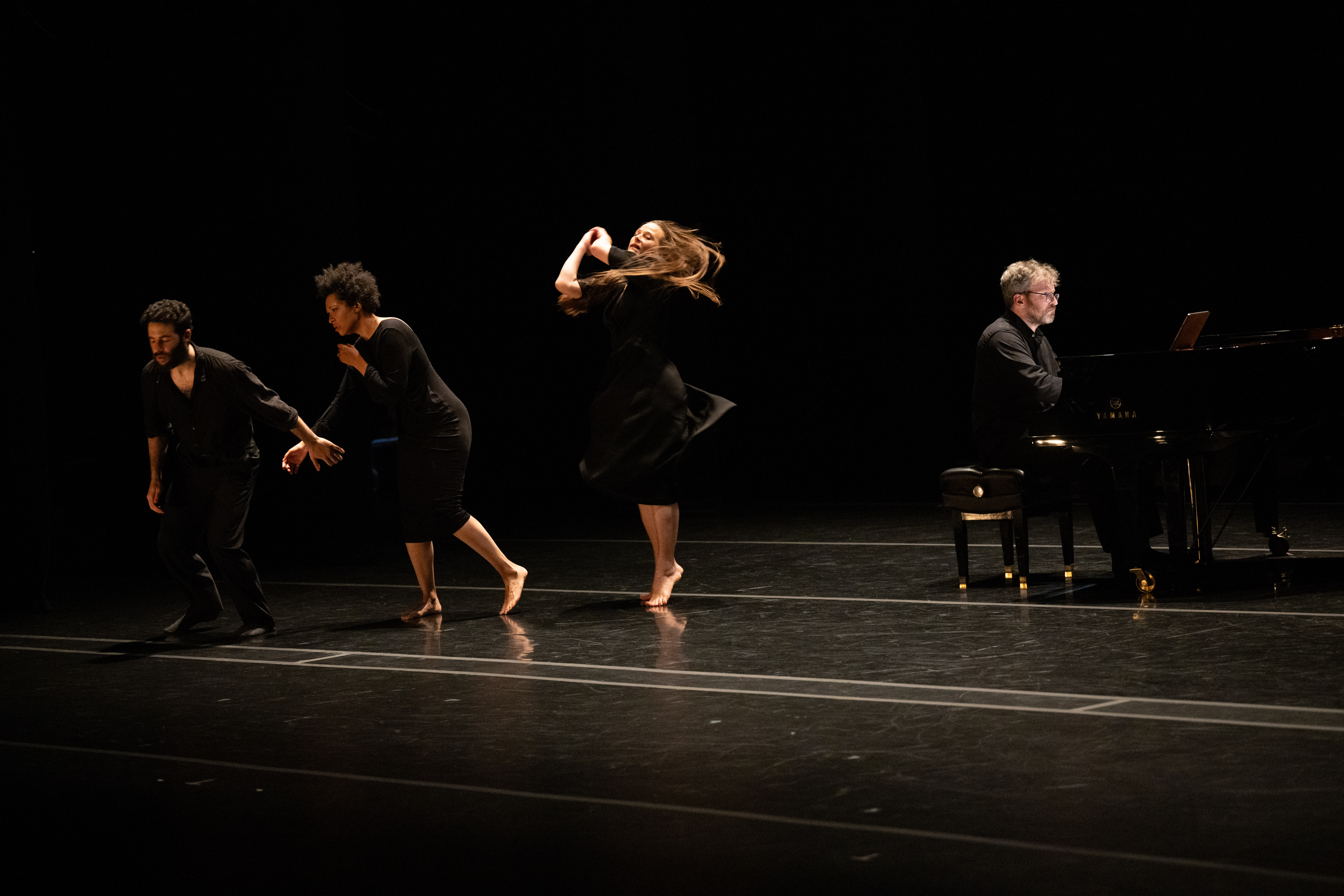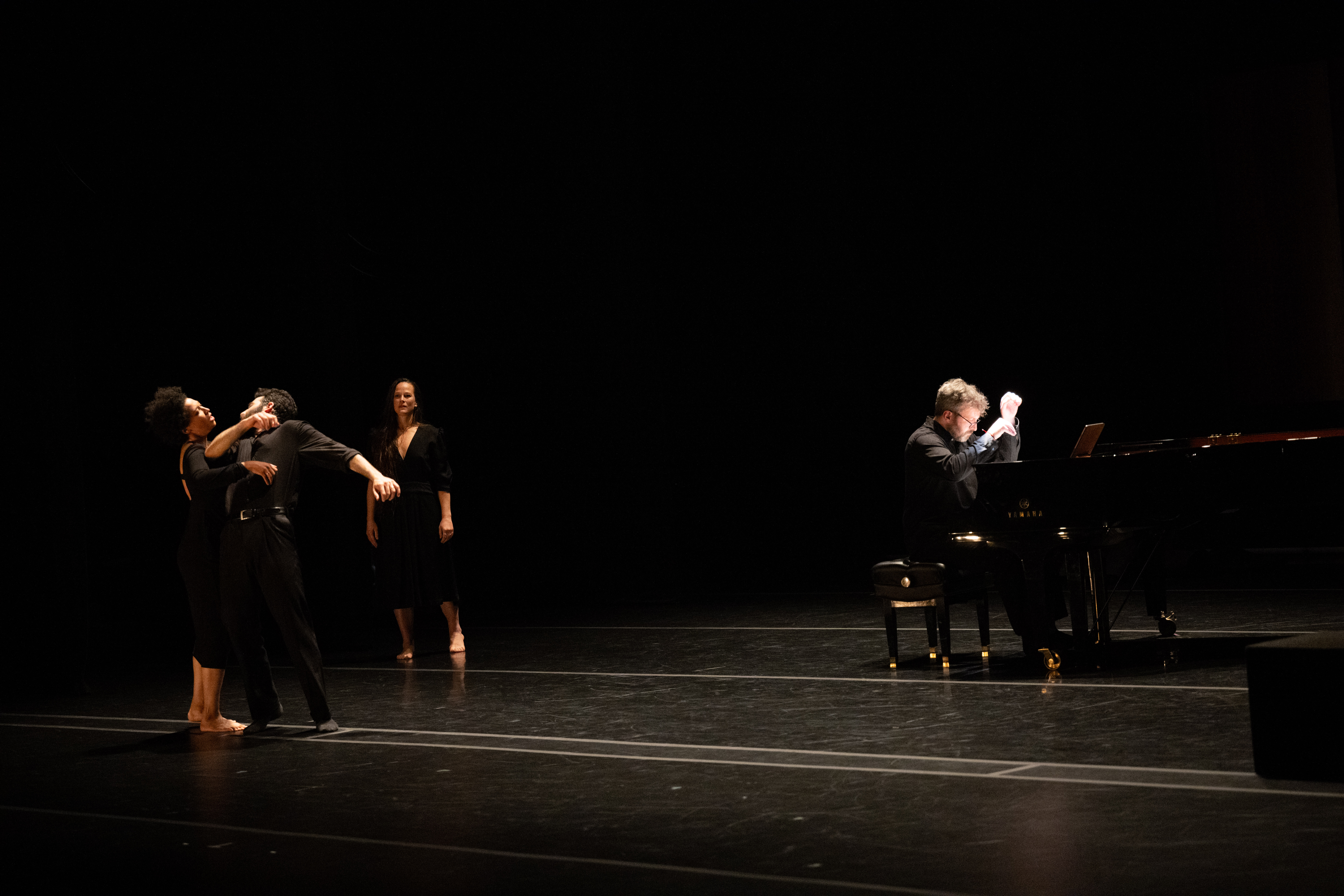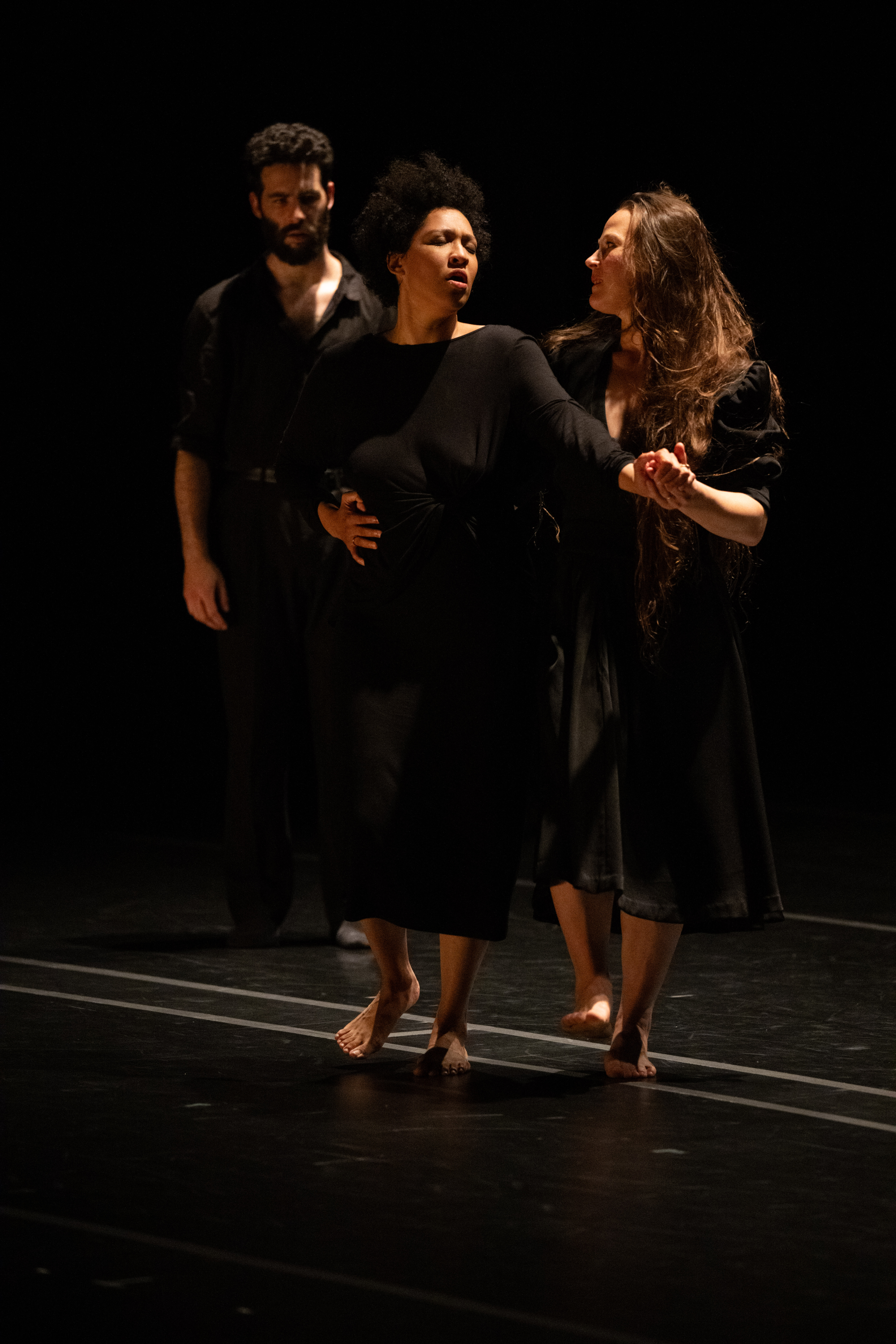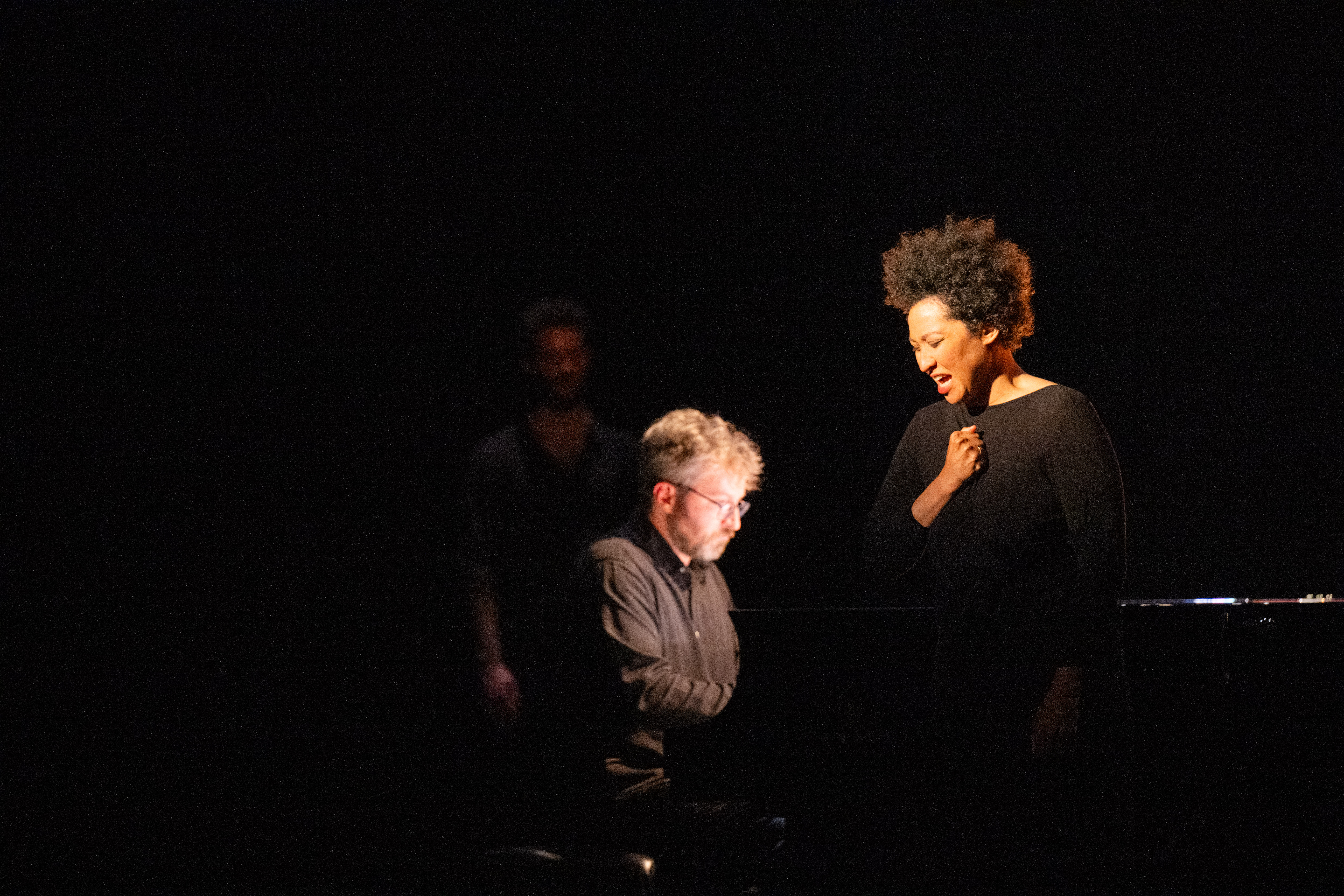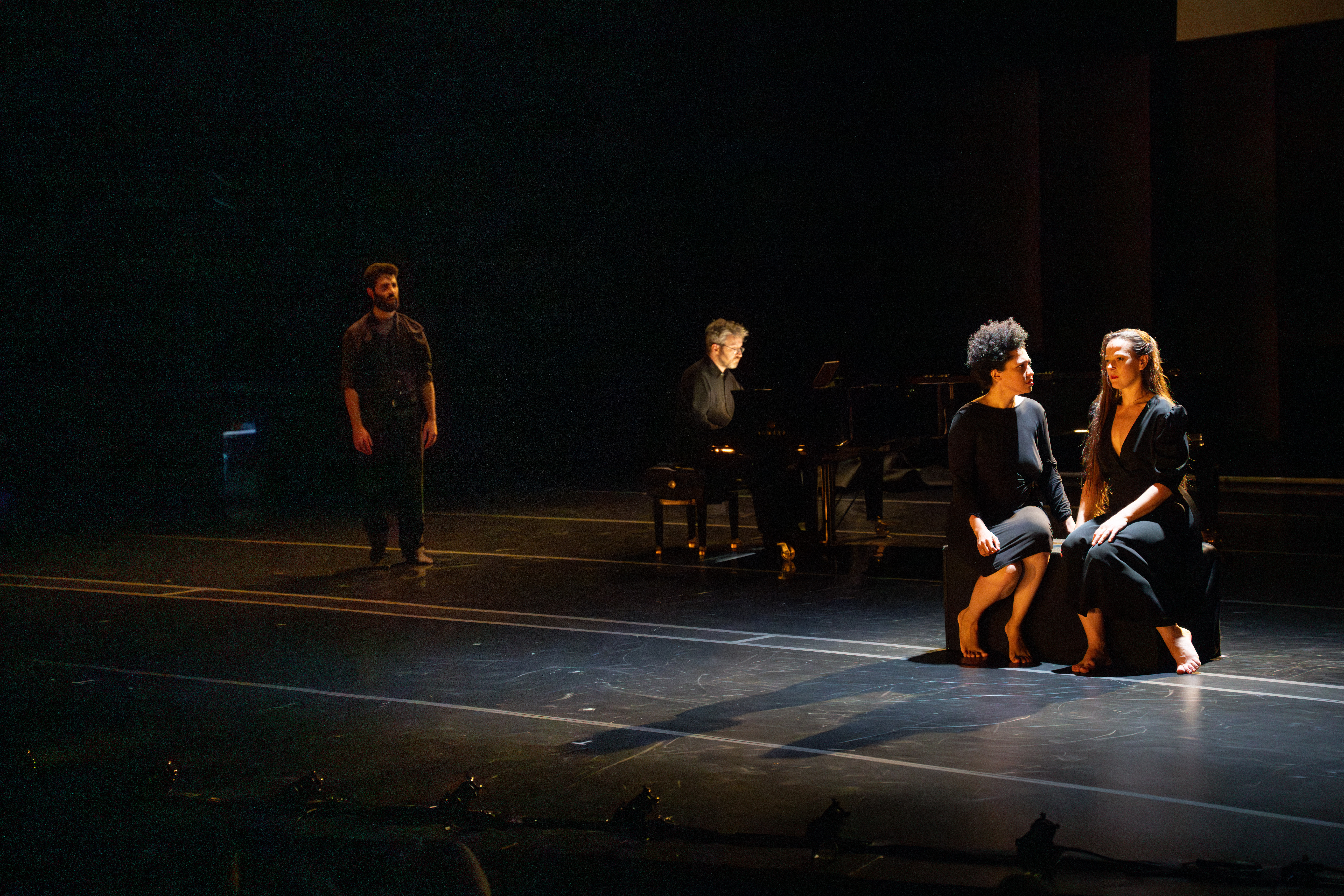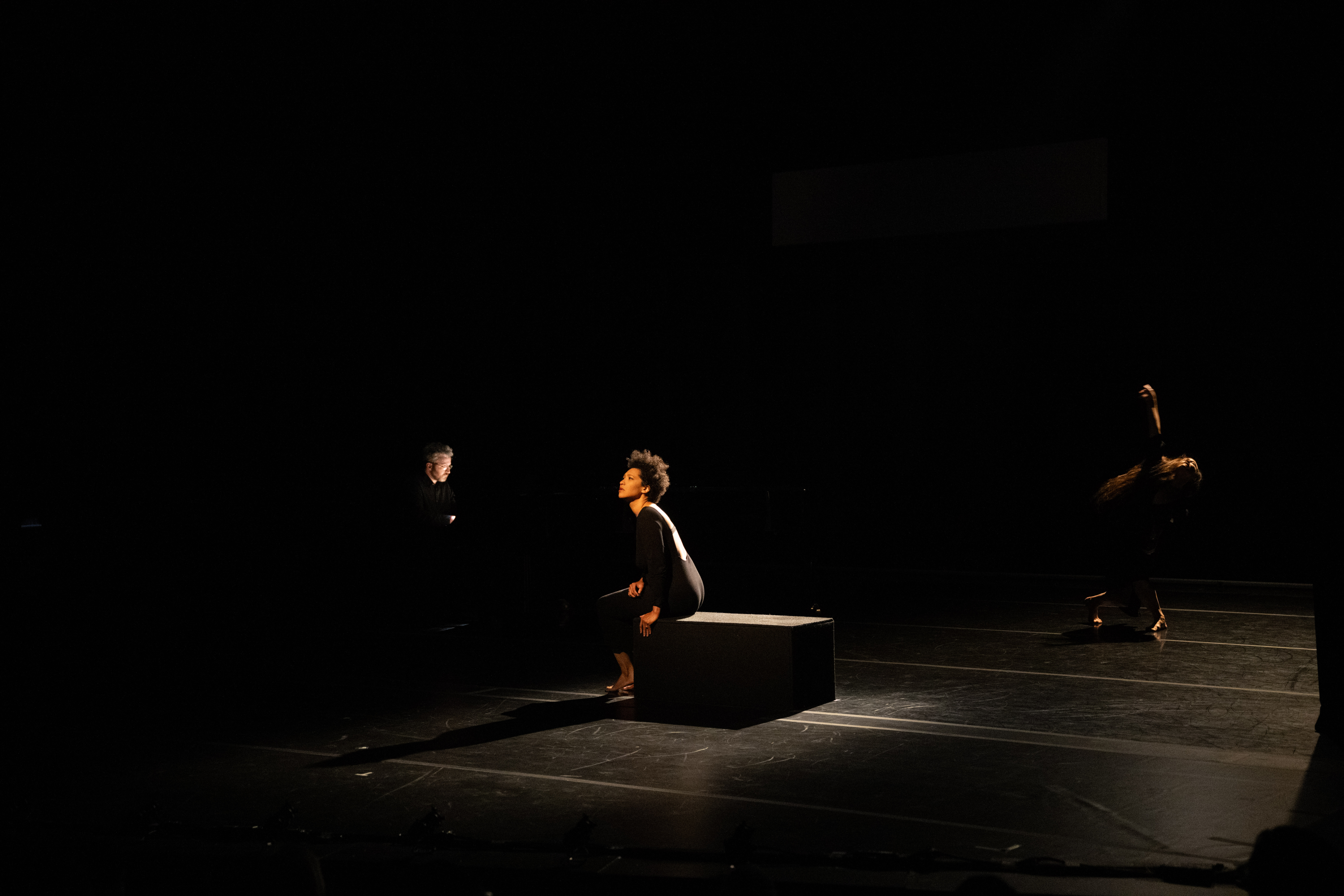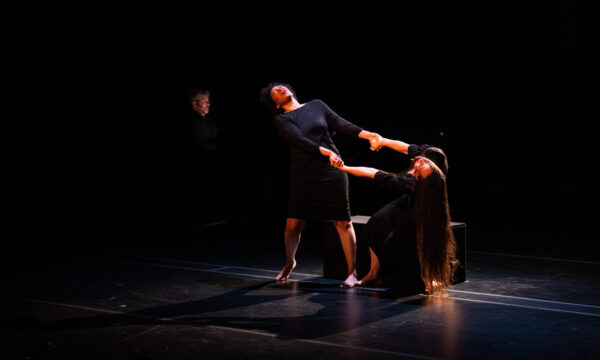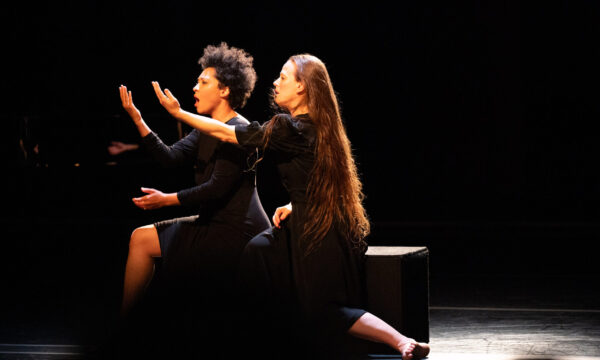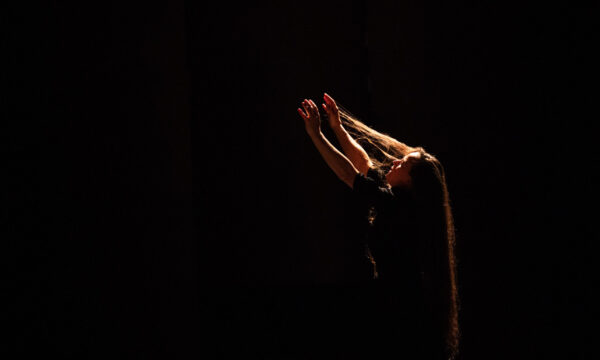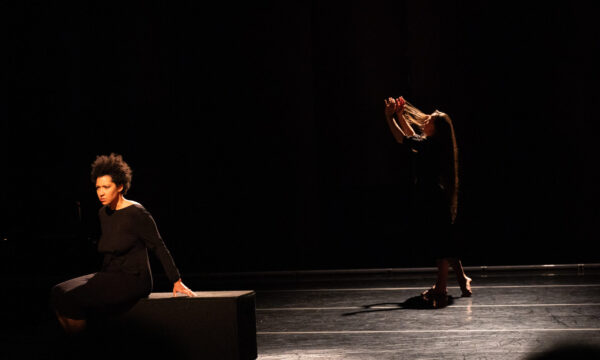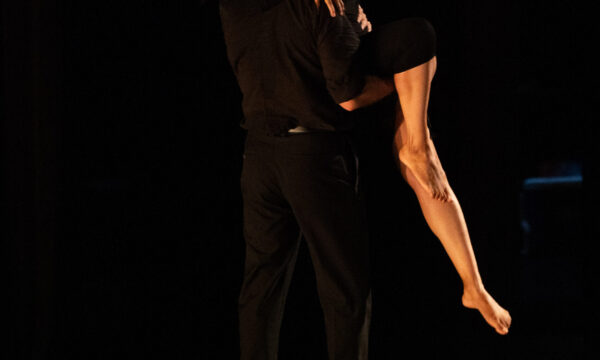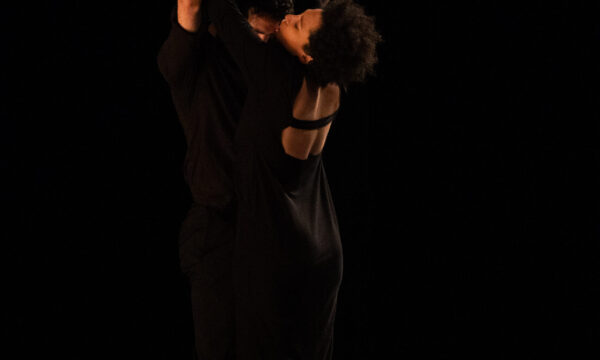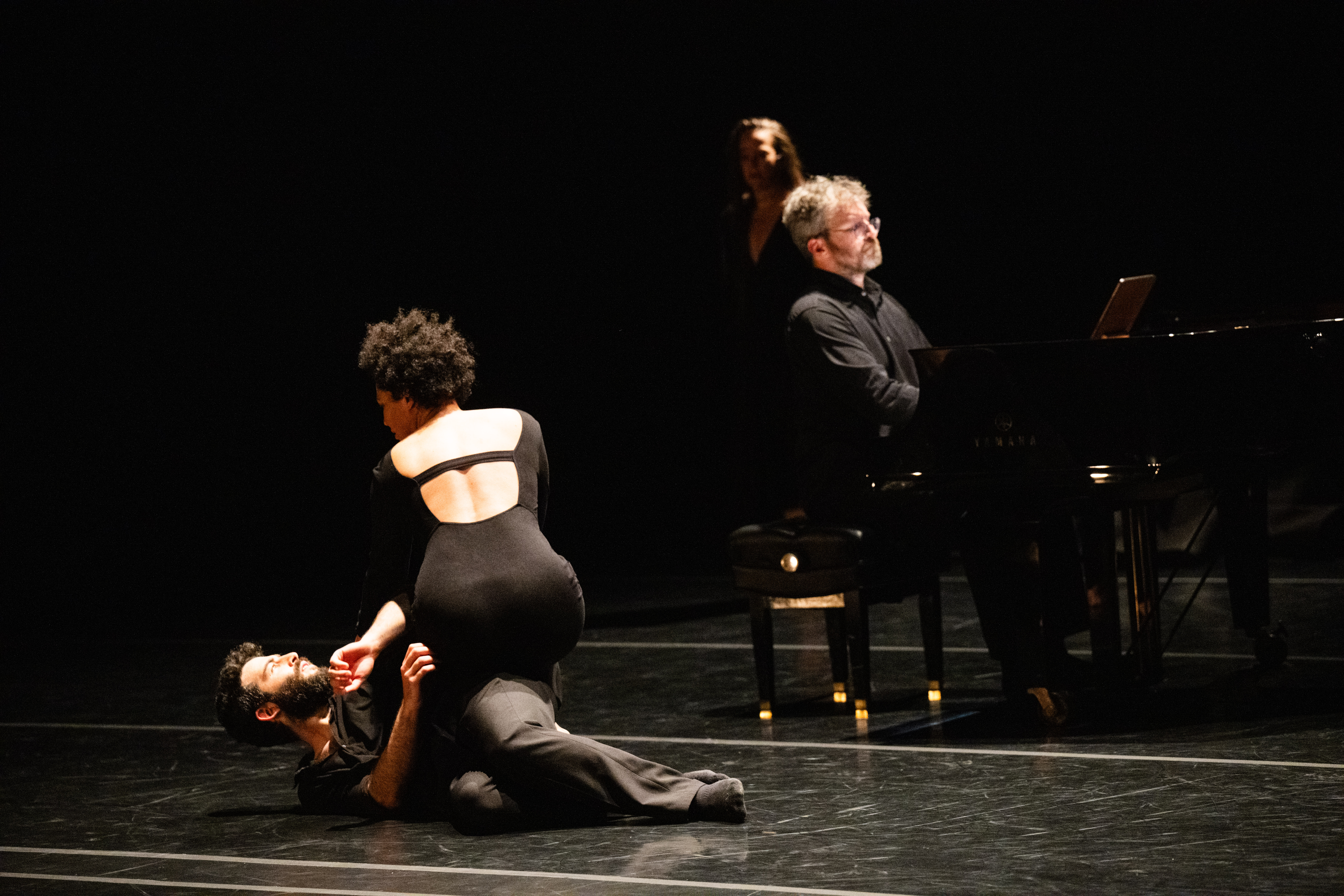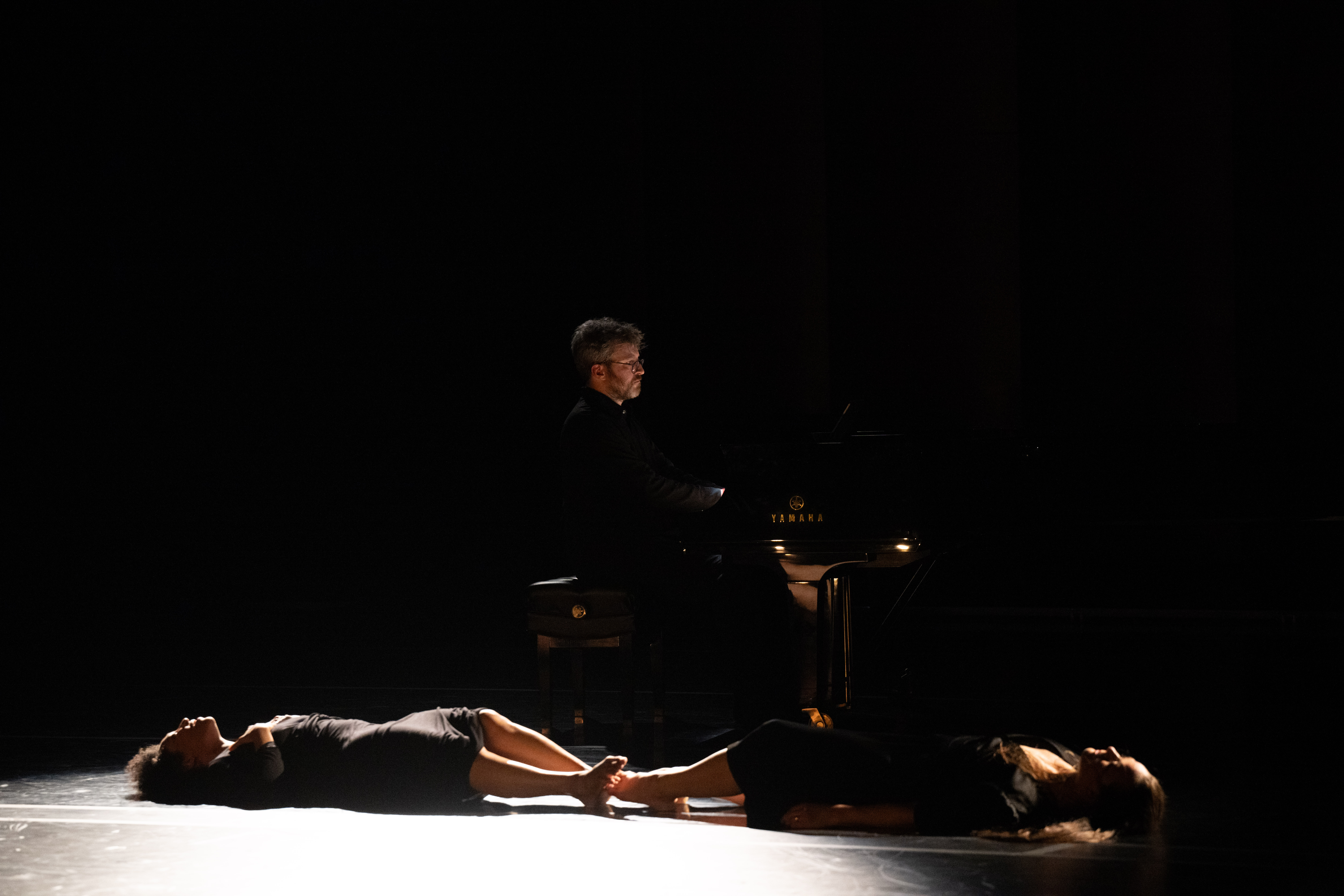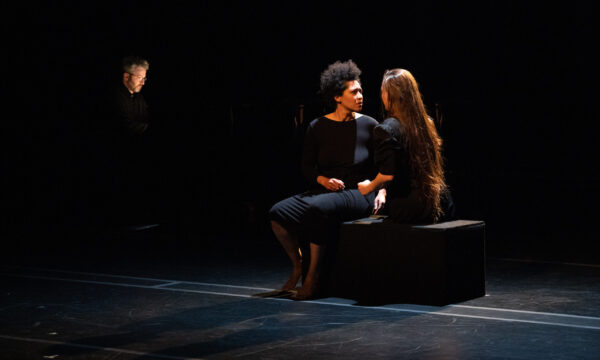From first listening to the piece while still in music school, to it taking 5 years to find the team and develop the concept, it’s thrilling to now share this immense work. It’s cosmic in scale, complicated in subject matter, and although it, at times, feels chaotic, it’s ultimately about seeking connection. — Julia Bullock
HARAWI realizes Olivier Messiaen’s deeply affecting, hour-long song cycle for voice and piano in new physical and dramatic dimensions. What begins as a duet unfolds into a charged quartet, where movement and music intertwine in an exploration of devotion and grief.
Statement about Harawi by Julia Bullock and Zack Winokur
Express living archives in the body — Articulate complex rhythms and patterns — Utilize repetition in order to better understand — Encourage improvisation — Invite movement and sound to become extensions of each other — Voice one’s surroundings as a way to be immersed in and expanded by them. — Utter broken words.*
These are some values intrinsic to the traditions of Harawi (Qarawi) — Andean music which is still expressed across the diverse cultures and peoples in Peru, Chile, Bolivia, Ecuador and beyond.
Olivier Messiaen only became aware of Andean Harawi traditions through an ethnographic anthology written by Marguerite and Raoul d’Harcourt, however the melodies and themes seemed to provide a space where Messiaen could process why love, loss, absence and presence are human preoccupations.
Messiaen’s life circumstances, relationships, and beliefs always seemed to infuse his compositions, oftentimes with explicit symbols and associations. Messiaen began to write this song cycle when he returned home after being a prisoner of war during World War II. Shortly after his return, the mind and body of Claire Delbos –– a fellow musician, source of inspiration, and his wife –– had begun to slowly degenerate, including total amnesia; all while a new love partner began entering his life.
While appropriating elements of Quechuan languages and Andean Harawi traditions, Messiaen’s song cycle Harawi explores dichotomies: life and death, pain and joy, spirituality and sensuality, sacrifice and preservation, fulfillment and loss. He seems to be asking from a place of personal grief: how do you stay connected to someone you love while the accumulated memories of your relationship begin to fade or drift? How do you recover and move on?
Our desire to perform this work — where shattered realities give way to expansiveness — originated from an intuitive interest in Messiaen’s expressions through his poetry and music. However, our discussions with current practitioners of Harawi, along with a direct acknowledgement of Olivier Messiaen’s difficult life circumstances while he wrote this piece, have informed the realization of this piece and revealed deep threads of resonance. We look forward to sharing where these explorations have led us.”
* These are fragments and impressions from conversations with Luz Zenaida Hualpa García, dancer and choreographer & Karen Michelsen Castañón, visual artist. Both are current practitioners of Harawi.
HARAWI
Music and Text by Olivier Messiaen
PAST PERFORMANCES AND FEATURED ARTISTS
Festival d’Aix-en-Provence – De Singel – Leverkusen – Elbphilharmonie – Ojai Music Festival – UCSB Arts & Lectures – Lincoln Center
Singer Julia Bullock
Pianist Conor Hanick, Alphonse Cemin
Dancer Bobbi Jene Smith, Julia Eichten
Dancer Or Schraiber, Zack Winokur
Stage Director Zack Winokur
Choreographer Bobbi Jene Smith
Choreographer Or Schraiber
Costume Design Victoria Bek
Lighting Design Christopher Gilmore
Original Lighting Design by John Torres
*an AMOC* production


